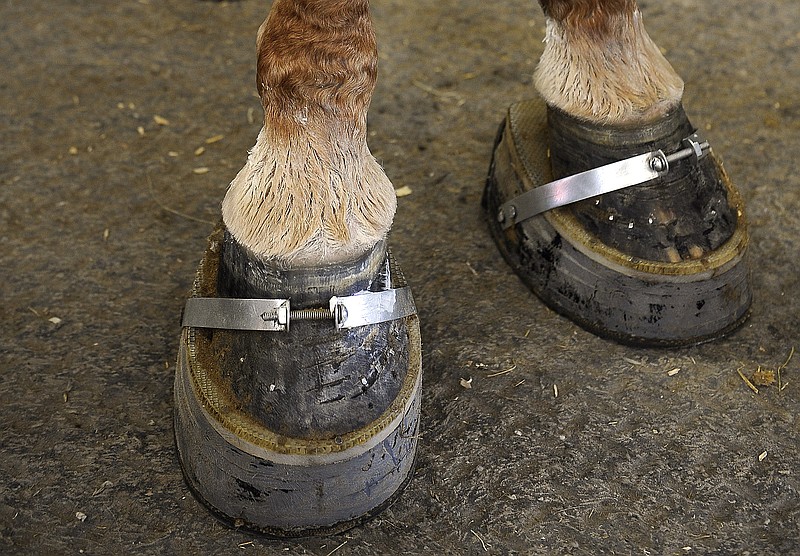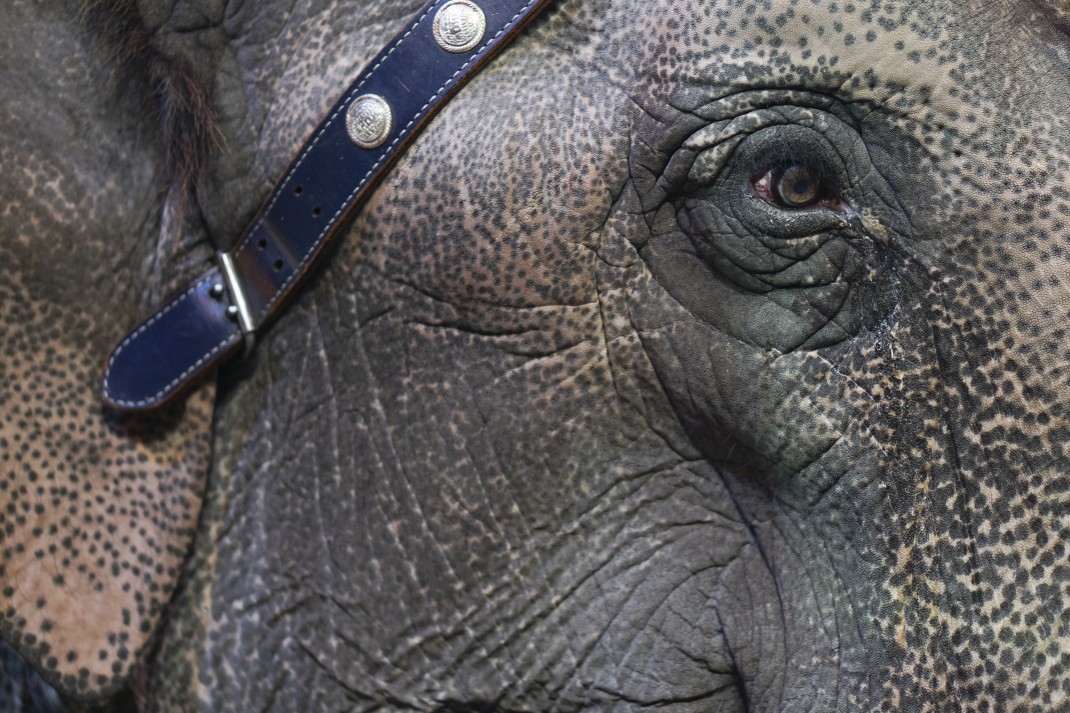The circus came to town, and protesters popped out of the woodwork.
They held signs decrying cruelty to animals.
They gave interviews saying they are pleased the Barnum & Bailey Circus announced earlier this month that elephants -- the animals that symbolize "The Greatest Show on Earth" -- will be phased out of Barnum's three traveling shows by 2018.
But why wait until then, asked the protesters from People for the Ethical Treatment of Animals and other groups.
Certainly all animals should have advocates to speak for their humane treatment.
Yet it seems a bit incongruous here in Tennessee -- home of Tennessee Walking Horse soring -- and here in Chattanooga -- the place where a Tennessee Walking Horse Hall of Fame trainer, Jackie McConnell, was prosecuted, pleaded guilty and sentenced -- that it's easier to spot protesters for a circus animals than to find consistent support for more humane treatment of Tennessee's own iconic horse breed.
Soring is the practice of deliberately injuring a horse's legs and hooves to force the horse to perform an artificial high-stepping gait highly prized in today's walking horse show ring.
Beautiful, athletic walking horses have a natural smooth and somewhat arched gait -- especially with patient training.
But over recent decades, too many trainers short-cut that patient part and instead used caustic chemicals, painful shoeing, heavy chains and oversized shoe pads to exaggerate that natural gait into a "big lick" gait.
The result -- aside from abused horses -- is that today's walking horses lurch around the ring, bearing little resemblance to the smooth, fluid magic of the champions from the 1940s, 1950s and early 1960s.
By the late 1960s, photos of champions began to show some differences in the front hooves of walkers. The hooves grew increasingly oversized, elongated, decked out with weighted hoof caps and the like.
In 1970, Congress passed the Horse Protection Act to end soring.
But it wasn't enough. In fact, unfathomably, McConnell's federal prosecution and conviction in 2012 was the first in the country! Even that, however, probably would not have happened had the Humane Society of the United States not spotlighted the pathetic cruelty with the release of undercover video of McConnell and his stable hands soring, beating and shocking horses.
But the walking horse industry doesn't seem to be changing its ways -- at least not without a fight. There's too much money tied up now in maintaining champion horse lines built on soring and much at stake in Shelbyville, Tenn., where walking horses feed an 11-day tourism event every September -- not to mention other horse-related businesses throughout our state.
That's why proposed legislation to strengthen the Horse Protection Act, the Prevent All Soring Tactics (PAST) Act -- has been languishing for more than two years without a vote despite huge Congressional support. Congress members from Kentucky and Tennessee -- both big walking horse states -- have held the bill in committees and muddied the water with red herring legislation. The PAST Act would amend the existing federal law to eliminate the Tennessee walking horse industry's failed system of self regulation, strengthen penalties against soring violators, and ban pads and chains.
Walking horse reform endured another setback last month when the U.S. Court of Appeals for the Fifth Circuit struck down a U.S. Department of Agriculture regulation requiring private, industry-appointed inspectors to impose mandatory minimum penalties on participants caught soring.
The court's ruling leaves no question that federal legislation is essential if we are to end a training method so painful that it leaves the horses standing as though all four of their feet are in a bucket -- or disinclined to stand at all.
The protests at the circus here this week served as a valuable tool to help circus goers remember that there's another side to their evening's entertainment. So, too, did the University of Tennessee's 2012 decision to showcase a sound, flat-shod horse in its annual homecoming game's walking horse demonstration. And this year, the University of Mississippi disassociated itself from "big lick" charity shows. A good peaceful protest and strong stand now and then can, and has, made a difference -- even if it's just one animal at a time.
But more must be done.
Certainly not all circus animals are treated poorly, just as not all Tennessee Walking horses are sored.
But any is too many.

